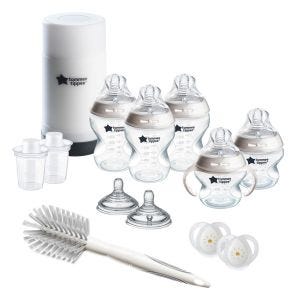
This is a demo store. No orders will be fulfilled.
Subscription orders can be cancelled at anytime. Free delivery on all subsequent subscription orders. Find out more about subscriptions.
They’re easy and fuss free
Your products are automatically sent to you
You save up to 10% when you sign up for a subscription
You can cancel at any time
Pumping breast milk shouldn't hurt and making sure that you have the correct breast pump horn size for your nipples makes it easier to painlessly express breast milk for your baby.
The truth is, no two nipples are the same, and we're here to help you find the correct-sized horn for you.
As well as the 24mm and 28mm horns that your wearable pump comes with, we also have 17mm and 19mm inserts and a 20mm horn available. If you think you need a different sized horn, you can order this (and other spare pump parts) for free, just follow the link below.
Put simply, the horn of your breast pump is the funnel-shaped plastic part that fits over your nipple as you pump. It's also sometimes called a flange or sheild.
Measuring your nipples and making sure that you're using the right horn size means that every pumping session is comfortable, efficient, and effective.
The correct fit is based on how your nipple fits into the tunnel of the horn, rather than how your breast fits into the cone of the horn.
Too Small
All your nipple rubs against the tunnel and none of your areola gets pulled in.
Too Big
More of your areola is sucked into the horn and may rub against the edge of the tunnel.
Just Right
While you pump, only a small amount of your areola is pulled into the tunnel, not too much or none.